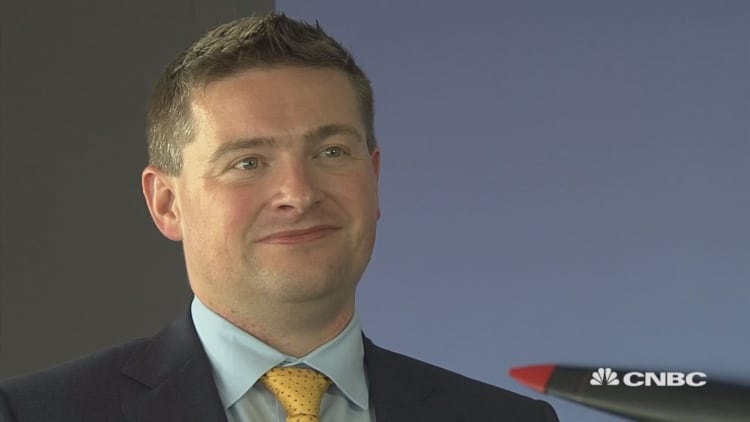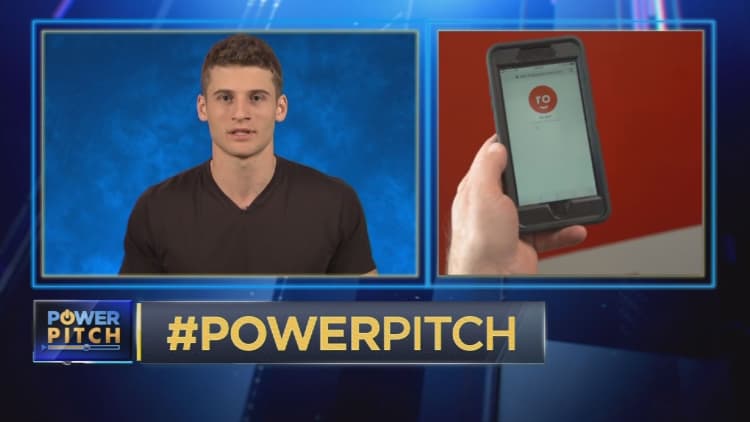Amazon is testing a new way to bolster its relationship with start-ups and possibly bring in more capital to the ecosystem. The fledgling effort, known as the Amazon Web Services Pro-Rata Program, is designed to link private investors with companies that use AWS, as well as venture funds whose portfolios are filled with potential cloud customers. Amazon is not investing money through the program.
The Pro-Rata program is being run by Brad Holden, a former partner at TomorrowVentures (founded by ex-Google CEO Eric Schmidt), and Jason Hunt, who are both part of AWS's business development team focused on angel and seed relationships, according to an email they sent to investors in January.
"The Pro-Rata Program is a new pilot intended to connect family offices and venture capitalists for specific investment opportunities from the AWS ecosystem," according to the email, which was viewed by CNBC. "Pro rata" refers to the rights investors have to put money in subsequent rounds.
AWS has built a $25 billion enterprise tech behemoth by luring big companies and government agencies onto its cloud, and it now accounts for the bulk of Amazon's profit. Ever since getting off the ground over a decade ago by providing computing and storage services for start-ups, AWS has counted on young and emerging companies for a big part of its success. Start-ups bring innovation to the platform and some, like Lyft, Pinterest and Slack, grow up to be large enterprises with hefty technology budgets.
Previously, Amazon and its smaller cloud competitors, Microsoft and Google, have attracted start-up developers through promotional credits that let them get started for free before they're even generating revenue. Amazon also has a program called AWS Activate, which partners with over 3,000 incubators, accelerators, venture firms and other groups to expand use of the technology.
The new program is another effort to bring more new start-ups into the fold.
Just introductions, not Amazon money
While Amazon is doing some start-up investing of its own through AWS and the Alexa Fund, this program is different. Holden and Hunt aren't putting in Amazon money, but are targeting specific companies and funds raising capital, and inviting investors who otherwise wouldn't have access to the deals to get a piece of the action.

In the email, AWS listed three companies and four firms that were raising capital. The companies were supersonic jet manufacturer Boom (raising $100 million), men's health products maker Roman ($50 million) and FreightWaves ($20 million), a provider of data and analytics for the freight market.
For each, investors had to commit a minimum amount (ranging from $20,000 to $500,000) by late January, and were told they'd be investing through a fund. For example, Torch Ventures had a $20 million allocation for the Roman financing round, and investors could participate in that specific fund if they were willing to put in at least $500,000. There's no management fee, but investors agree to pay 10 percent of the carried interest (or profit) to Torch if returns are up to 1.5 times the amount of the investment, and a bigger percentage if the gains are higher.
Torch Capital is one of the four venture funds available to investors, the email said. The New York-based firm, which is focused on early-stage consumer start-ups, was raising a $60 million fund, with a 2 percent management fee and 20 percent carried interest. Story Ventures was raising $30 million and Shrug Capital was raising $10 million at the time of the email. The fourth fund was from Liquid 2 Ventures, whose founding team includes Hall of Fame quarterback Joe Montana, though the size of the fund wasn't disclosed.
These are high-risk bets. Boom is trying to build jets for 55 passengers that will fly over oceans at twice the speed of sound for the same price as a business class ticket. Roman is developing treatments for erectile dysfunction, hair loss and genital herpes and faces the risk of liability and regulatory oversight.

Holden, who's based in the Bay Area, and Hunt, who works out of New York and Los Angeles, say in the email that they're running the pilot program, but investors are responsible for doing their own research on each deal and allocations are at the discretion of the fund manager or company. In other words, just because AWS is inviting you in, doesn't mean you're guaranteed a spot.
"While investments are sourced from managers we trust, participants are expected to perform their own due diligence on all investments," the email said. "This pilot is intended to connect managers to discuss potential investments."
The email doesn't say if Amazon has any way of making money from the project. An Amazon spokesperson declined to comment, and neither Holden nor Hunt responded to requests for comment.


